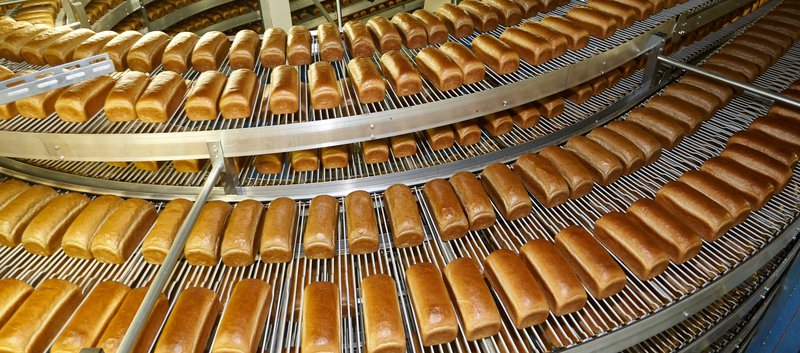Extract from Retail World Supply Chain and Logistics feature 'Flowing it all Away' June 2020
Driving a different type of innovation in the supply chain sector is Castlegate James Australasia. Retail World interviewed Group CEO Steven Chaur to understand how it is taking waste (co-product) from food manufacturers, saving it from becoming landfill, and instead using it to create animal feed for farmers across Australia.
“Our business is quite unique in that we are not a waste services company, but we’re very much a supplier driven business because of our role in supporting the food industry to solve food ‘waste’ problems in an environmentally sustainable way,” he said. “Then, on the other side, we’re also a food manufacturer and customer in our own right, manufacturing and selling product to livestock producers.
“As a supply chain driven business, we support the large food and beverage manufacturing companies that operate 24 hours, seven days a week. From an environmental perspective, we’re helping to reduce landfill, taking all this good organic food material and repurposing it. Last year we repurposed over 700,000 tonnes of food products that could have gone to landfill, and demand for our service is growing.
“A fundamental of our business model is the fact that often we need to be at our customers’ sites 24 hours, seven days a week logistically to pick and collect the product, because in many cases and particularly in some industries, production can cease if outfeed silos aren’t emptied in time.
“Brewing is a classic example of this because if the spent brewer’s grains and yeast is not collected on time, they can’t produce the next brew.
“There’s a lot of logistics involved, not only collecting the co-product from a supplier’s site, but because many of these products are perishable, we do operate on a just-in-time basis and we then have to do something with the co-product in real time before it spoils.

“We can either ship it directly to livestock producers nationally as a co-product feed ingredient, or we can take it to one of our 10 manufacturing sites around Australia or New Zealand and convert the material into another higher value animal feed product.”
Mr Chaur says the way many farmers operate is to create a Total Mix Ration on their farm, using various types of commodity ingredients such as grains or meals and food co-products. This ration is blended using a mixer on the back of a trailer of between five and 20 tonnes.
“If we don’t sell what we collect direct to a farmer, and if there’s the opportunity for increased value adding, then we’ll take it to one of our facilities,” he said. “It will then be de-packaged and blended with other co-product ingredients to create a new, often bespoke product specific to a livestock feed application.
“The co-products that we blend in our own products are generally made up of other high-quality products from other food manufacturers. We’ll take brewers grains and mix it with bread or with biscuits, muesli bars, potato chips, citrus peel or other co-products, and that will go into creating a specific nutritionally balanced feed blend. These may go to beef feedlots or Wagyu cattle producers or to dairy or sheep feeds. Humans like these foods and so do livestock. We see amazing productivity results on farm from our blends.

”In terms of the complexity of the business, Mr Chaur says Castlegate James has to be responsive to fluctuations in the food supply chain and able to react when volumes go up and down, largely due to supermarket promotional cycles. Integrated demand planning with our key suppliers is so critical to success in managing such significant volumes and across such varied products and supplier production locations.
“Our supply can go from feast to famine in some periods where bread production may drop off or beer production will increase and you have to be able to manage the co-products supply chain to be able to provide reliable supply consistency to the supplier and to the farm customer,” Mr Chaur said.
“From a logistics perspective there is a just-in-time element to our model and we have a large national freight network to manage this. I believe the success of our business after 97 years comes from the ability to manage a diverse supply chain, move product between markets as demand changes, and we have a totally customer focused approach to everything we do.
“Our competitive advantage is market coverage, and our freight networks allow us to quickly move product to where it’s needed and to the right customer base.
“From a supply chain, logistics and demand planning perspective, you’ve got to be connected to your suppliers in terms of their demand plans, and you have to then be in tune with your customer needs to be able to move products in a timely manner because much of the product can be perishable.”

Mr Chaur took over the reins at Castlegate James in 2019 and quickly understood that business was built on a philosophy of good service.
“When I joined the business, we were very much positioned as a stock feed company. Underlying that, we had this strong yet unacknowledged heritage in the sustainable management of food co-product ‘waste’ with many blue-chip food suppliers relying on us daily to provide them a reliable solution,” he said. “Food waste is a huge topic on everyone’s sustainability agenda and given the large volumes of consumer food we currently repurpose, there’s a larger role we can play in food industry sustainability. Our’s is also a complementary model to the national food charities as we use the manufactured by-products they cannot use”.
“Last year we relaunched our entire company to better reflect this sustainability theme and a new strategic direction to be providing the food industry more broadly with innovative co-product solutions around livestock feeds, ingredients, bio-energy and packaging recycling solutions.
Having a robust supply chain like we do underpins our ability to deliver on these opportunities and service such a large cross section of suppliers and customers nationally.”